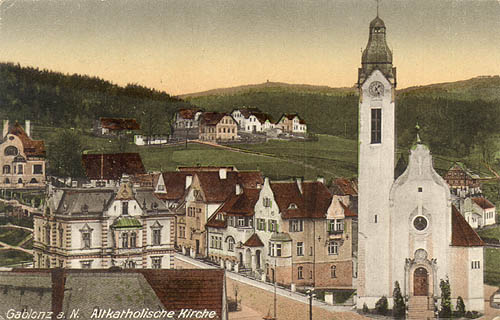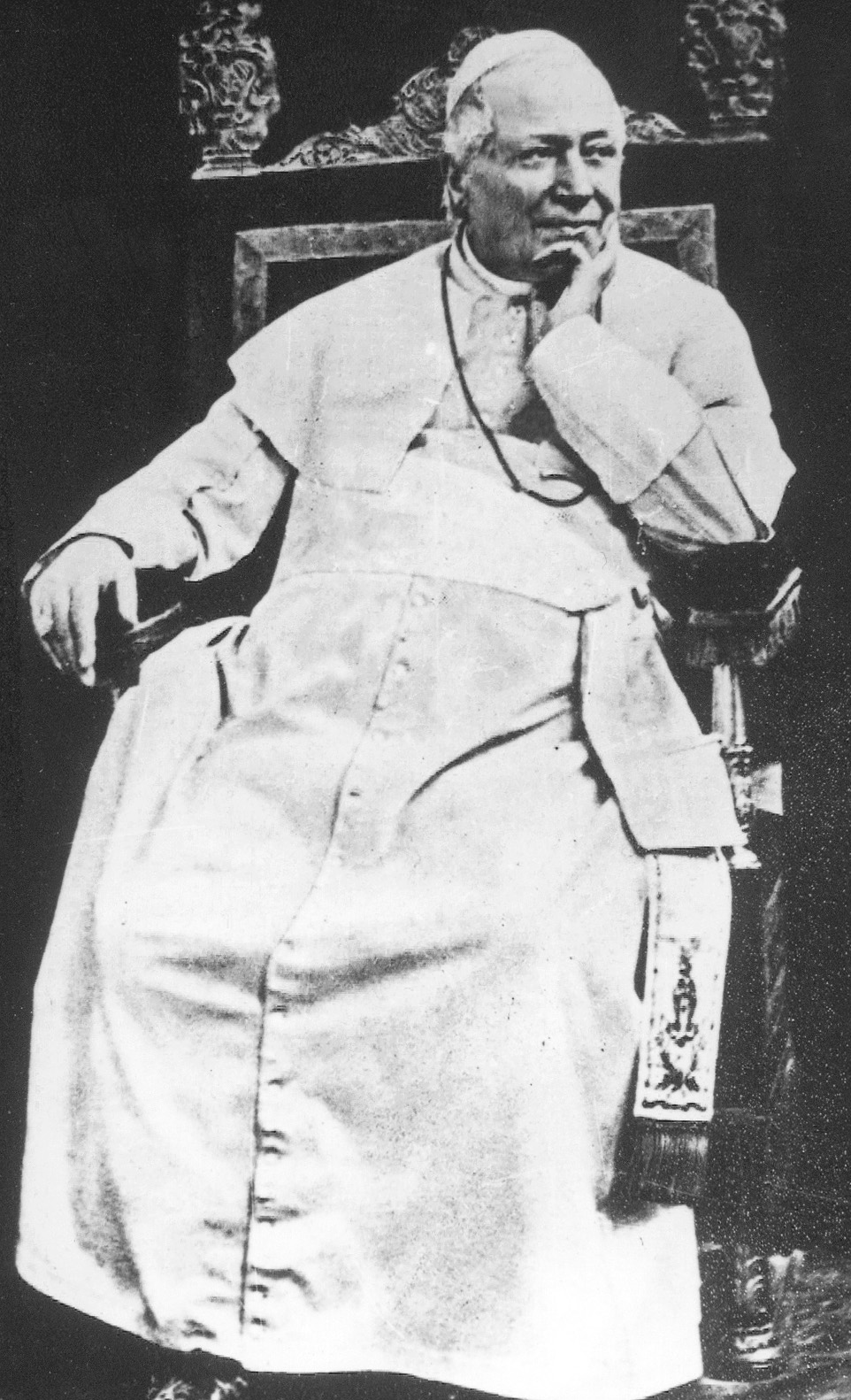|
Ultramontanism
Ultramontanism is a clerical political conception within the Catholic Church that places strong emphasis on the prerogatives and powers of the Pope. It contrasts with Gallicanism, the belief that popular civil authority—often represented by the monarch's or state's authority—over the Church is comparable to that of the Pope. History The term descends from the Middle Ages, when a non-Italian pope was said to be ''papa ultramontano –'' a pope from beyond the mountains (the Alps).Benigni, Umberto. "Ultramontanism." The Catholic Encyclopedia Vol. 15. New York: Robert Appleton Company, 1912. 6 January 2019 Foreign students at medieval Italian universities also were referred to as ''ultramontani''. After the [...More Info...] [...Related Items...] OR: [Wikipedia] [Google] [Baidu] |
Gallicanism
Gallicanism is the belief that popular civil authority—often represented by the monarch's or the state's authority—over the Catholic Church is comparable to that of the Pope. Gallicanism is a rejection of ultramontanism; it has something in common with Anglicanism, but is nuanced, in that it plays down the authority of the Pope in church without denying that there are some authoritative elements to the office associated with being ''primus inter pares'' (first among equals). Other terms for the same or similar doctrines include Erastianism, Febronianism, and Josephinism. University of Notre Dame professor John McGreevy defines it as "the notion that national customs might trump Roman (Catholic Church) regulations."''Catholicism and American Freedom,'' John McGreevy Norton and Co., New York 2003, p. 26. The doctrine originated in France (the term derives from ''Gallia'', Gaul). In the 18th century it spread to the Low Countries, especially the Netherlands. It is ... [...More Info...] [...Related Items...] OR: [Wikipedia] [Google] [Baidu] |
Cisalpinism
Cisalpinism (derived from "this side of the Alps") was a movement among English Roman Catholics in the late eighteenth century intended to further the cause of Catholic emancipation, i.e. relief from many of the restrictions still in effect that were placed on Roman Catholic British subjects. This view held that allegiance to the Crown was not incompatible with allegiance to the Pope. Background With the deterioration of relations with the American colonies, the British government was faced with the necessity of increasing troop recruitments. While the Catholic Relief Act of 1778 eased some provisions of the Penal Laws, its main purpose was to encourage the Catholic gentry to support enlistments. According to historian Thomas Bartlett, "It firmly established the principle of Catholic relief as a key element of war-time strategy." The passing of this act was the occasion of the anti-Catholic Gordon Riots (1780). Catholic Committee First English Catholic Committee Cisalpinism was ... [...More Info...] [...Related Items...] OR: [Wikipedia] [Google] [Baidu] |
Febronianism
Febronianism was a powerful movement within the Roman Catholic Church in Germany, in the latter part of the 18th century, directed towards the nationalizing of Catholicism, the restriction of the power of the papacy in favor of that of the episcopate, and the reunion of the dissident Churches with Catholic Christendom. It was thus, in its main tendencies, the equivalent of what in France is known as Gallicanism. Friedrich Lauchert describes Febronianism, in the ''Catholic Encyclopedia'', as a politico-ecclesiastical system with an ostensible purpose to facilitate the reconciliation of the Protestant bodies with the Catholic Church by diminishing the power of the Holy See. Origin of name The name is derived from the pseudonym ''Justinus Febronius'' adopted by Johann Nikolaus von Hontheim, coadjutor bishop of Trier, in publishing his book '. Taking as a basis the Gallican principles which he imbibed from the canonist Zeger Bernhard van Espen while pursuing his studies at the Uni ... [...More Info...] [...Related Items...] OR: [Wikipedia] [Google] [Baidu] |
Regalism
Regalism is the idea that the monarch has supremacy over the Church as an institution, often specifically referring to the Spanish monarchy and the Roman Catholic Church in the Spanish Empire. Regalists sought reforms that "were intended to redefine the clergy as a professional class of spiritual specialists with fewer judicial and administrative responsibilities and less independence than in Habsburg times." Origins Regalism evolved in Spain from a narrow focus on the excesses of the Catholic Church’s secular authority to a doctrine that emphasized the supreme power of the monarchy and its role in society and in the international order. Starting in the 1970s, some historians have viewed regalism as being rooted in the Patronato Real, the crown’s power of appointment of ecclesiastics to Church offices granted to the Catholic Monarchs, Isabel and Ferdinand, giving monarchy the power of appointment of ecclesiastics in their overseas realms of Spanish America and later the Philippin ... [...More Info...] [...Related Items...] OR: [Wikipedia] [Google] [Baidu] |
Josephinism
Josephinism was the collective domestic policies of Joseph II, Holy Roman Emperor (1765–1790). During the ten years in which Joseph was the sole ruler of the Habsburg monarchy (1780–1790), he attempted to legislate a series of drastic reforms to remodel Austria in the form of what liberals saw as an ideal Enlightened state. This provoked severe resistance from powerful forces within and outside his empire, but ensured that he would be remembered as an " enlightened ruler" by historians from then to the present day. Origins Born in 1741, Joseph was the son of Maria Theresa of Austria and Francis I, Holy Roman Emperor. Given a rigorous education in the Age of Enlightenment—with its emphasis on rationality, order, and careful organization in statecraft—it is little wonder that, viewing the often confused and complex morass of Habsburg administration in the crownlands of Austria, Bohemia, and Hungary, Joseph was deeply dissatisfied. He inherited the crown of the Holy Roma ... [...More Info...] [...Related Items...] OR: [Wikipedia] [Google] [Baidu] |
Old Catholic Church
The terms Old Catholic Church, Old Catholics, Old-Catholic churches or Old Catholic movement designate "any of the groups of Western Christians who believe themselves to maintain in complete loyalty the doctrine and traditions of the Great Church, undivided church but who separated from the see of Rome after the First Vatican council of 1869–70". The expression Old Catholic has been used from the 1850s by communions separated from the Roman Catholic Church over certain doctrines, primarily concerned with Papal supremacy, papal authority and Papal infallibility, infallibility. Some of these groups, especially in the Netherlands, had already existed long before the term. These churches are not in full communion with the Holy See. Member churches of the Union of Utrecht (Old Catholic), Union of Utrecht of the Old Catholic Churches (UU) are in full communion with the Church of Sweden, Evangelical Lutheran Church of Sweden and the Anglican Communion; many members of the Union of ... [...More Info...] [...Related Items...] OR: [Wikipedia] [Google] [Baidu] |
Papal Infallibility
Papal infallibility is a dogma of the Catholic Church which states that, in virtue of the promise of Jesus to Peter, the Pope when he speaks '' ex cathedra'' is preserved from the possibility of error on doctrine "initially given to the apostolic Church and handed down in Scripture and tradition". It does not mean that the pope cannot sin or otherwise err in most situations. This doctrine, defined dogmatically at the First Vatican Council of 1869–1870 in the document '' Pastor aeternus'', is claimed to have existed in medieval theology and to have been the majority opinion at the time of the Counter-Reformation. The doctrine of infallibility relies on one of the cornerstones of Catholic dogma, that of papal supremacy, whereby the authority of the pope is the ruling agent as to what are accepted as formal beliefs in the Catholic Church. The use of this power is referred to as speaking ''ex cathedra''. "Any doctrine 'of faith or morals' issued by the pope in his capacity ... [...More Info...] [...Related Items...] OR: [Wikipedia] [Google] [Baidu] |
Papal Primacy
Papal primacy, also known as the primacy of the bishop of Rome, is a Roman Catholic ecclesiological doctrine concerning the respect and authority that is due to the pope from other bishops and their episcopal sees. The doctrine is accepted at a fundamental level by both the Catholic Church and Eastern Orthodox Church, though the two disagree on the nature of primacy. English academic and Catholic priest Aidan Nichols wrote that "at root, only one issue of substance divides the Eastern Orthodox and the Catholic Churches, and that is the issue of the primacy." French Eastern Orthodox researcher Jean-Claude Larchet wrote that, together with the ''Filioque'' controversy, differences in interpretation of this doctrine have been and remain the primary causes of schism between the Catholic Church and the Eastern Orthodox Church. In the Eastern Orthodox churches, some understand the primacy of the bishop of Rome to be merely one of greater honour, regarding him as ' ("first among ... [...More Info...] [...Related Items...] OR: [Wikipedia] [Google] [Baidu] |
Kulturkampf
(, 'culture struggle') was the conflict that took place from 1872 to 1878 between the Catholic Church led by Pope Pius IX and the government of Prussia led by Otto von Bismarck. The main issues were clerical control of education and ecclesiastical appointments. A unique feature of , compared to other struggles between the state and the Catholic Church in other countries, was Prussia's anti-Polish component. By extension the term is sometimes used to describe any conflict between secular and religious authorities or deeply opposing values, beliefs between sizable factions within a nation, community, or other group. Background Europe and the Catholic Church Under the influence of new emerging philosophies and ideologies, such as the enlightenment, realism, positivism, materialism, nationalism, secularism, and liberalism, the role of religion in society and the relationship between society and established churches underwent profound changes in the 18th and 19th centuries. Po ... [...More Info...] [...Related Items...] OR: [Wikipedia] [Google] [Baidu] |
Kardinal Edward Manning JS
Jason Drew Harrow (born May 11, 1976), better known by his stage name Kardinal Offishall (), is a Canadian rapper, record producer, DJ, and record executive. Often credited as Canada's " hip hop ambassador", he is regarded as one of the country's best hip hop producers, and is best known for his distinctive reggae and dancehall-influenced style of hip hop. Biography">Kardinal Offishall > BiographyAllMusic. Accessed on October 24, 2012. A native of Toronto, Offishall began his career in the city's mid-1990s underground hip hop scene, as a member of The Circle.Kardinal Offishall making waves Jam! Music. Accessed on October 22, 2012. He released several independent 12" singles, a debut alb ... [...More Info...] [...Related Items...] OR: [Wikipedia] [Google] [Baidu] |
Pastor Aeternus
''Pastor aeternus'' ("First Dogmatic Constitution on the Church of Christ"), was issued by the First Vatican Council, July 18, 1870. The document defines four doctrines of the Catholic faith: the apostolic primacy conferred on Peter, the perpetuity of the Petrine Primacy in the Roman pontiffs, the definition of the papal primacy as a papal supremacy, and Papal infallibility – infallible teaching authority (magisterium) of the Pope. Petrine and papal primacy There is general agreement among scholars on the preeminence that the historical Peter held among the disciples of Jesus, making him "the most prominent and influential member of the Twelve during Jesus' ministry and in the early Church".It was to Simon alone, to whom he had already said You shall be called Cephas, that the Lord,…spoke these words: "Blessed are you, Simon Bar-Jona. For flesh and blood has not revealed this to you, but my Father who is in heaven. And I tell you, you are Peter, and on this rock I w ... [...More Info...] [...Related Items...] OR: [Wikipedia] [Google] [Baidu] |
.jpg)



